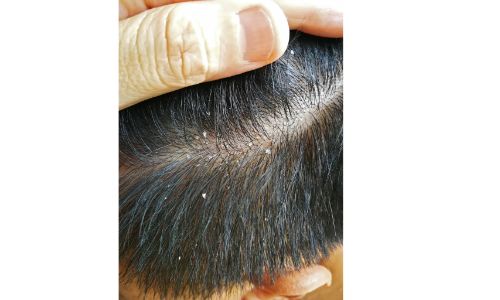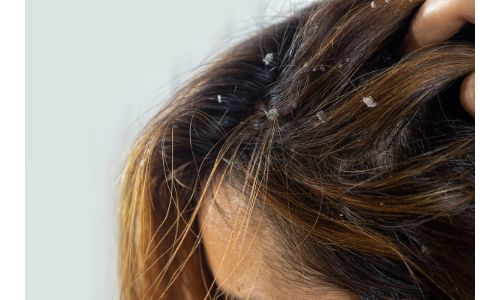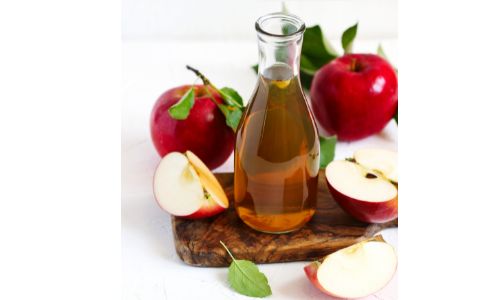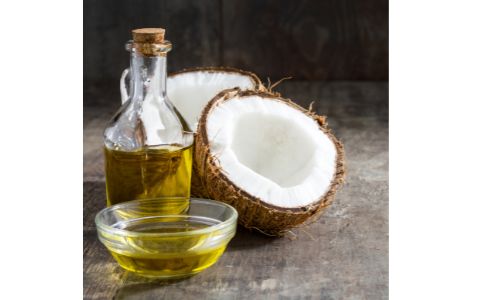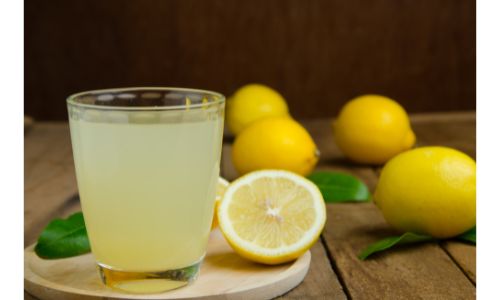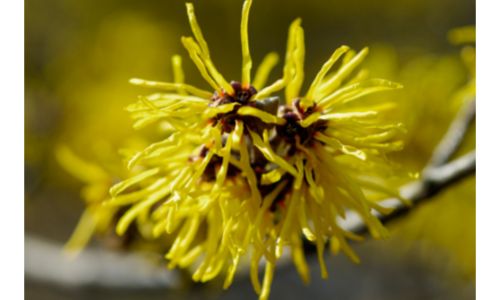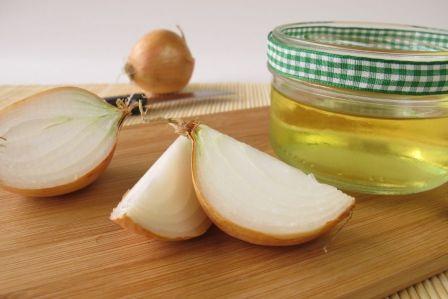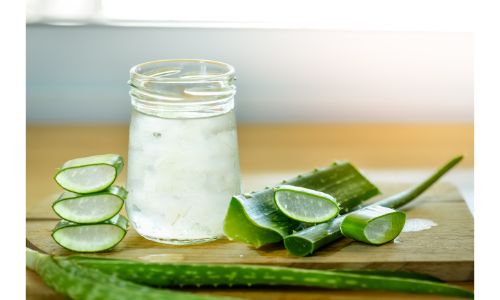Have you recently noticed flakes on your scalp? Our first thought is that it is dandruff. However, in some cases, it might be a sign that your scalp is simply dry.
Do not fret – with proper hair care treatment and a few magic kitchen ingredients, these conditions are treatable. Since it has similar symptoms, you must know the condition before starting treatment.
This article provides a brief idea about the difference between dandruff and dry scalp, their causes, and their symptoms. It’s done to know your condition since this article will mainly focus on ways to get rid of dry scalps – not dandruff!
Is it Dandruff or just a Dry Scalp?
If you do not know the correct difference, it will look like both dandruff and dry scalp has the same symptoms. However, that is not the case because these conditions are different.
Dandruff
Hair grows in different phases and falls out after its lifespan – about 50 to 100 strands fall out each day. Similarly, our skin also has a set lifespan of about two to three weeks. This means that after this period, your skin cells automatically shed off, and new skin cells form.
When you have a severe dandruff problem, the rate at which the skin cells shed is quicker than usual. Researchers still haven’t proven the exact reason or cause for dandruff.
Some reasons for dandruff include seborrheic dermatitis (overproduction of oil), Malassezia (a type of fungus), and even conditions like psoriasis and eczema. Other reasons include hormonal changes (during puberty) and stress, hereditary, alcohol consumption, drastic climate changes, lack of nutrients, and so on.
Dry scalp
A dry scalp is something different! As the name suggests, this condition occurs when your scalp is dry or, in other words, when there is little or no moisture or oil. Scalp gets dry for various reasons like too much exposure to cold and dry air, old age, and even some hair products (results in contact dermatitis).
Other causes include being dehydrated, allergies to products, long hot showers, using artificial heat sources, and so on. People with dry skin or conditions like atopic dermatitis (a common type of eczema), contact dermatitis, scalp psoriasis, and so on are also prone to dry scalp.
However, it is worth knowing that dandruff is also a reason for dry scalp in some instances, but nevertheless, they aren’t the same thing.
The typical symptom for both these conditions is an itchy scalp. So, to know which condition you are suffering from, you need to know the differences.
Dandruff has white or yellow, oily, large flakes, while dry skin has smaller, dry flakes. Your whole body tends to be dry if you have a dry skin scalp condition, whereas if it is a dandruff problem, you will have oily, red, scaly skin.
The difference at a single glance –
| Dandruff | Dry scalp | |
| How do the flakes look? | White or yellow oily, large flakes
|
Small, dry flakes
|
| How does your skin look? | Oily, red, scaly skin on your scalp
|
Dry body skin
|
How to get rid of dry scalp? (Home remedies)
Given below are a few home remedies for dry scalp.
1. Apple cider vinegar
Did you know that your scalp has an alkaline pH level when it’s dry? You are in luck because apple cider vinegar is known to have acidic properties. This means that vinegar is a perfect option to restore your hair to a healthy pH level.
Apart from being rich in minerals, vitamins C and B, it also has antimicrobial properties that help control bacteria or fungi growth on your scalp, thereby preventing conditions like Malassezia. Not only does it help with the itchy scalp, but it also protects against hair breakage.
How to use apple cider vinegar?
- Take two to three teaspoons of apple cider vinegar and dilute it with sufficient water.
- If the acidic smell is too strong, you can add honey or any essential oil.
- With the help of a cotton ball, gently apply it to your scalp.
- After applying it throughout your hair, massage for a few minutes.
- Rinse with cold water after 10-15 minutes.
Note – Always remember to dilute, or it can worsen the problem and cause irritation and burns.
2. Avocado
Most of us would have heard about avocado shakes, and those are yummy! But did you know that it makes an excellent hair mask? The oils in an avocado can easily penetrate since it contains monounsaturated fats, making it an excellent choice for hydrating your scalp and preventing flaking. Apart from vitamins and minerals, avocado also has antioxidants that help to reduce inflammation and heal wounds quicker.
Conditioning your hair makes it softer, smoother, and shinier, but it also protects it from breakage and other pollutants in the environment. The avocado works as a conditioner. Not only does it help treat dandruff and dry scalp, but it prevents breakage, helps detangle hair, and also protects from chlorine pool water and too much exposure to sunlight.
To make a hair mask –
- Divide the fruit in two and remove the seed.
- Scoop the inside and transfer it into a bowl.
- Optional – one egg and one tablespoon of honey.
- Beat all of the ingredients into a smooth paste.
- After shampooing, apply the paste onto your scalp. Let it stay for 30 to 40 minutes.
- Rinse with cold water.
- Repeat one in two weeks.
If you do not want to use avocado as a hair mask, you can always opt for avocado hair oil. You can use it either before shampooing or as a conditioner. Warm the oil and gently massage it onto your scalp. Leave it for 30 minutes and follow your regular shampoo routine.
If you want to use it as a conditioner, apply the oil onto your damp hair from the tip to the root after shampooing. This is done to avoid hair breakage.
3. Coconut oil
Coconut oil, as a natural moisturizer, has been passed down from generation to generation, and with good reason! It increases the skin’s surface lipid level, thereby locking the vital proteins needed for strong and shiny hair.
It has antibacterial and antifungal properties that help to keep inflammation and other skin diseases at bay. According to a study, coconut oil can treat eczema and Malassezia.
You can apply coconut oil the same way you applied avocado oil before showering. If you want, you can even leave it overnight. Rinse with shampoo and conditioner for the silky, smooth hair.
4. Eggs
Yes, they do make a yummy and healthy snack. It is rich in vitamins A, B 2, B12, B5, selenium, phosphorus, and lots and lots of protein. Do you know what else is made up of protein? Yes – your hair!
While egg white helps cleanse the excess oil accumulated on your scalp, egg yolk nourishes your brittle, dry hair. Not only does it help with the dry scalp problem, but it also provides sufficient vitamins to the root of your hair and protects it from free radicals. This stimulates stronger and fuller hair growth which is less prone to breakage.
How to make a hair mask?
- Beat the egg yolk in a bowl.
- Mix it with a tablespoon of unflavoured yogurt or olive oil.
- Gently massage the paste onto your scalp.
- Leave it for 10 to 15 minutes.
- Wash it off with lukewarm or cold water.
- Repeat this once in two weeks.
5. Lemon juice
Are you out of apple cider vinegar? Well, do you have some lemon at home? If so, you are in luck because you found your substitute. As mentioned before, when you have a dry scalp, the pH level of your scalp is more than 7.
So, to balance the pH level – use an acidic product, like lemon juice. The citric acid present in lemon juice helps to reduce the dryness and flaking.
There are numerous ways you can make lemon hair masks –
- Two tablespoons of lemon juice with two tablespoons of amla juice.
- A tablespoon of lemon juice with two tablespoons of curd.
- A tablespoon of lemon juice with three tablespoons of honey.
- Combine a well-beaten egg with a tablespoon of lemon juice.
- A tablespoon of tea with a tablespoon of lemon juice.
- If you are too lazy to combine and make a mixture, you can simply use lemon.
Leave the mixture for 5-10 minutes and rinse with cold water. Repeat it one or two times a week.
6. Witch hazel
Most of the remedies listed here can be made using kitchen ingredients except this one. It is okay to consume witch hazel in small diluted doses, but it can cause severe liver damage if you consume too much. To be on the safer side – use it as an exterior product.
Witch hazel is best known for its anti-inflammatory properties, which help treat skin and scalp irritation. According to a study, witch hazel shampoo was highly efficient in reducing scalp inflammation and irritation on sensitive scalp. So, use witch hazel oil if the cause of your dry scalp is conditions like psoriasis, atopic dermatitis, and even dandruff.
Attention: Do a skin patch test before you start using witch hazel since it can cause irritation and allergic reactions for some.
Start by cleaning the area. Apply a small amount of the ointment or oil to your skin – a pea-size would do. Bandage the area so that it does not spread. Wait for 24 hours. If the skin looks different or it itches, stop using it and immediately consult a doctor.
How to use witch hazel?
- Mix the witch hazel liquid with water or carrier oil in a ratio of 1:2.
- Gently massage the mixture onto your scalp.
- After 5 to 10 minutes, rinse with cold water.
7. Onion juice
Like witch hazel, onion juice also has anti-inflammatory and antimicrobial properties to reduce irritation and flaky skin. It also has phytochemicals and flavonoids like kaempferol and quercetin that helps to moisturize the dry scalp. Apart from this, its high sulfur content also helps with the follicle regeneration process and gives you smooth, shiny, strong hair.
The steps to make the hair mask is as follows –
- Blend about 1/4th cup of juice.
- Mix the juice with one tablespoon of honey.
- Gently dab with a cotton ball or massage it onto your scalp.
- Let it sit for half an hour and wash with cold water.
- Repeat once a week.
8. Banana
According to a study, due to the antimicrobial properties, vitamin, potassium, and oil content in bananas, it is an excellent choice to moisturize dry scalp, remove flaky skin and treat dandruff conditions. It also contains silica which improves hair texture and makes it strong and thick.
How to use it?
- Peel the banana and blend it.
- Add a tablespoon of coconut or olive oil to the mashed paste.
- Gently massage it onto your scalp and let it stay for 10 to 15 minutes.
- Wash with lukewarm or cold water.
- Repeat it once a week for the best results.
9. Aloe vera
This is a go-to for sunburns and dry skin as it accelerates wound healing time. But it also contains antioxidants and antibacterial properties that reduce skin irritation, and the amino acids and vitamins provide moisture to your scalp. A study found that aloe vera is exceptionally efficient for treating seborrheic dermatitis – a condition that results in flaky, dry skin.
How to use aloe?
- After you remove the latex, scoop out the gel. Mix ½ cup of aloe with ¼ cup of ginger juice. Mix well and apply to your scalp. Keep it overnight and wash it off with a mild shampoo.
- With ½ cup of aloe vera, add three tablespoons of vinegar to reap the benefit of both these great ingredients. Using a cotton ball, apply the mix onto your scalp and leave it for three to four hours before you rinse it off.
- You can also mix aloe gel with essential oils for that silky, smooth, and nourished hair.
- Do this twice a week for highly nourished hair.
10. Tea tree oil
This would be another item on the list that is not a kitchen ingredient. According to a study, people who regularly used shampoos with 5% tea tree oil for four weeks had a considerable improvement in their dandruff condition. Tea tree oil also has anti-inflammatory properties that help to reduce irritation and flaky, red skin.
I would suggest you do a skin patch test with tea tree oil as well to make sure you do not have any allergic reaction to it. Once you make sure you do not react to it, you can make your hair mask.
- Add tea tree oil with carrier oil (like coconut oil or olive oil) in a 1:1 ratio. Massage it onto your scalp and wash it off after 10 to 15 minutes.
- You can also use it along with your shampoo.
Verdict –
A flaky scalp doesn’t necessarily mean dandruff; it can simply mean you have a dry scalp.
Common remedies like eggs, aloe vera, coconut oil, olive oil, onion juice, and lemon juice nourish our scalp and provide strong, healthy hair. If you plan to use witch hazel or tea tree oil, I suggest you do a patch test since they aren’t common kitchen ingredients, and you don’t want another allergic reaction!
I hope you found this article useful. What are some of your home remedies for dry scalp? Please let us know in the comment section. Have a great day.


